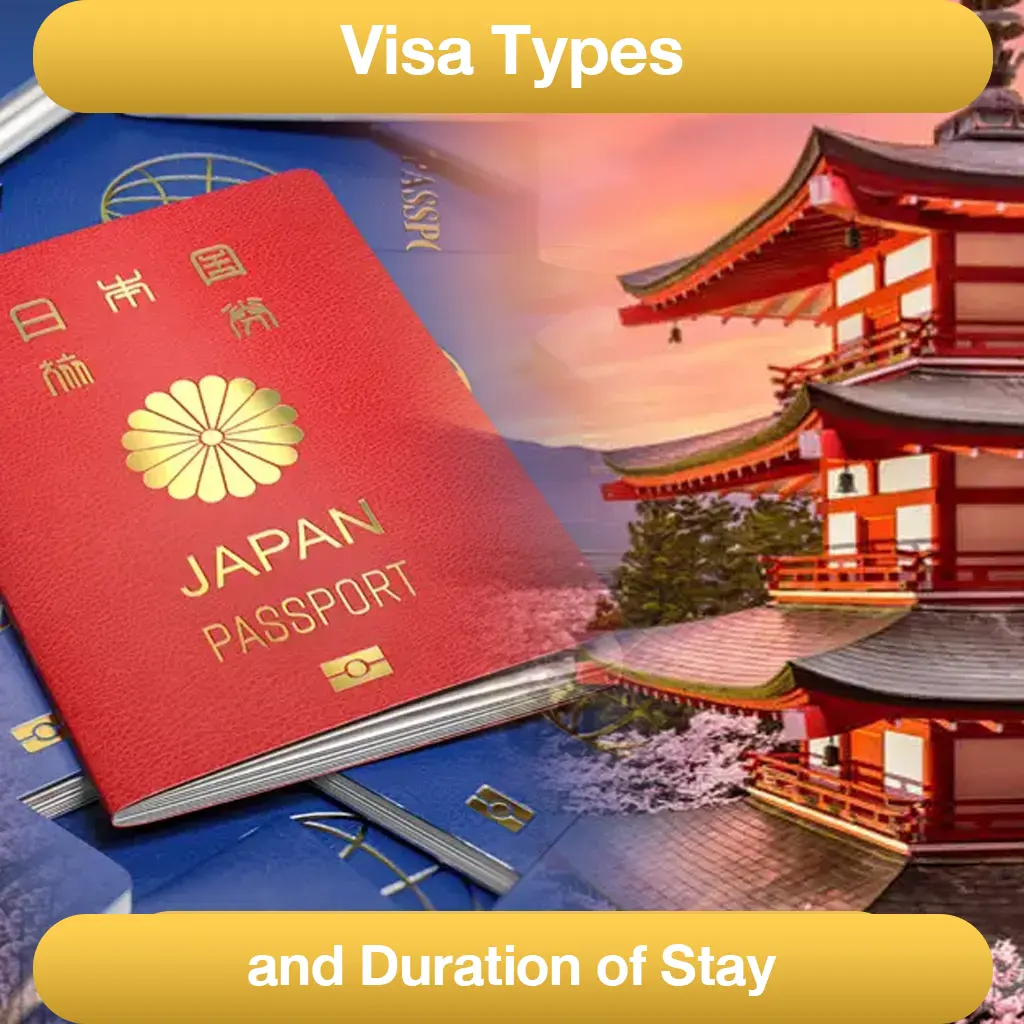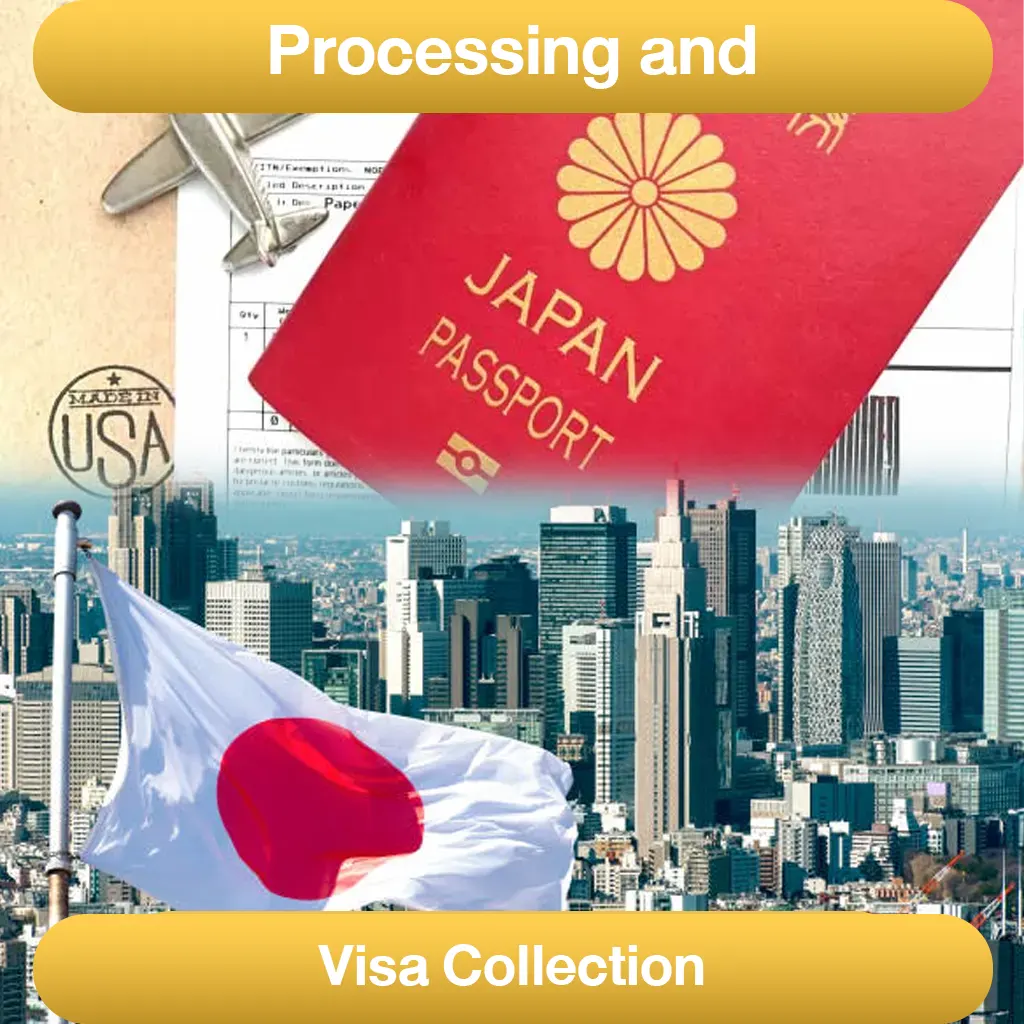Applying for a Japanese visa might seem complicated to many, but understanding the visa types, procedures, and preparing the correct documentation can make the process smoother. This guide will delve into all essential details of obtaining a Japanese visa, from choosing the right visa type and preparing documents to submission procedures and visa collection, ensuring your journey to Japan goes as smoothly as possible.
Visa Types and Duration of Stay
Japan offers various visa categories depending on the purpose of travel, with each type having different permitted lengths of stay and conditions. Travelers must select the visa type that accurately matches their travel intentions.
Here are the main entry permit categories:
- Single Entry: Allows one entry within the specified period. A new visa is required after leaving the country
- Multiple Entry: Permits multiple entries and exits during the visa’s validity period, ideal for frequent travelers
- Duration of Stay: Varies by visa type, ranging from 15 days to 5 years, depending on travel purpose
Tourist and Family Visit Visas (15-90 Days)
The tourist visa is the most popular category, designed for those planning leisure travel, sightseeing, or general tourism. Applicants must demonstrate sufficient financial means and provide a detailed travel itinerary for stays up to 90 days.
Family visit visas require additional documentation proving relationship status and an invitation letter from relatives residing in Japan. The host relative must guarantee expenses during the stay, and the duration is determined based on the relationship and visit purpose.
Business and Work Visas (1-5 Years)
Business visas are issued to those traveling for business meetings, negotiations, or trade activities. The validity ranges from 1-5 years, depending on business nature and travel frequency. Supporting documents from both the applicant’s company and Japanese business partners are required.
Work visas are suited for those with employment contracts from Japanese companies, valid for 1-5 years based on contract duration. Applicants must meet job qualification requirements and obtain approval from Japanese Immigration.
Document Preparation and Submission Process
Proper documentation is crucial for visa approval. Applicants should thoroughly research requirements and prepare all necessary papers before scheduling their appointment.
Essential documents include:
- Passport with minimum 6 months validity
- 2-inch white background photos
- Visa application forms
- 6 months of bank statements
- Employment verification
- Tax records
- Flight tickets
- Accommodation bookings
- Travel itinerary
- Travel insurance
Basic and Specific Documentation Requirements
Basic documentation is mandatory for all visa types and must be prepared according to embassy specifications. All documents should be either originals or properly certified copies, arranged in the embassy’s preferred order.
Beyond basic requirements, applicants need specific documents based on their visa type. For example, work visas require employment contracts, while family visit visas need invitation letters and relationship proof. Proper document preparation ensures smooth processing.
Appointment Scheduling and Embassy Submission
Visa appointments must be scheduled in advance through the embassy’s online system. Applicants should provide personal information and select a convenient date and time, allowing sufficient preparation time for documents and travel to the embassy.
On the appointment day, arrive early with all prepared documents. Officials will review submissions and may conduct interviews if necessary. Dress professionally and be prepared to answer questions about your travel plans.
Processing and Visa Collection
Visa processing is a detailed procedure requiring time and thoroughness. The embassy examines all information and documentation for assessment.
Important processing aspects include:
- Processing Time: Generally 5-7 working days for tourist visas, 2-3 weeks for other types
- Influencing Factors: Document completeness, travel history, financial status, and travel purpose credibility
- Status Tracking: Available through the embassy website using reference numbers
Processing Timeline and Influencing Factors
Processing duration varies by visa type and documentation complexity. Tourist visas typically process fastest, while work and long-term visas require more time due to multi-agency reviews.
Key assessment factors include previous travel history, document completeness, and clear travel purposes. Processing times may extend during peak seasons or special events.
Status Tracking and Collection Procedures
Applicants can monitor application status through the embassy’s online system using their reference number. The system displays current status and notifies when processing completes.
Upon approval, collect passports from the embassy or document center as specified. Immediately verify visa details for accuracy and report any errors to staff for correction. For comprehensive information about visas for other destinations, such as Taiwan visas, visit our website for complete guidance on procedures and requirements.


 ไทย
ไทย


